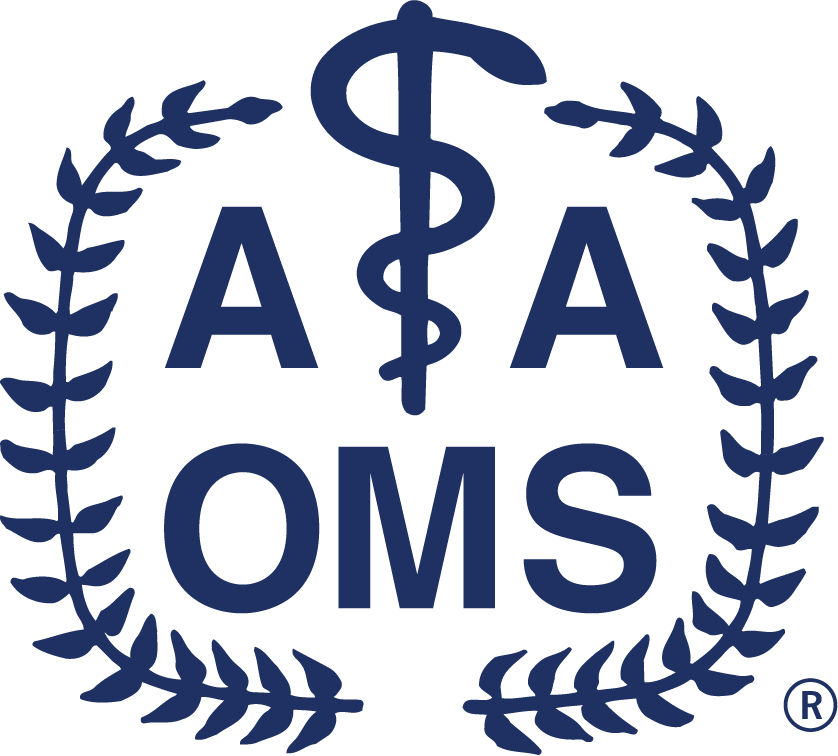
When Should You Say No? Peri-anesthetic Evaluation for Office-based Surgery
-
You must log in to register
- Member - $100
- Resident Member - Free!
- Allied Staff Member - $100
- Professional Staff Nonmember - $200
- Other Nonmember - $200
Update from 2014 presentation: Pre-anesthetic patient evaluation is de rigueur for maximizing safety, efficacy and efficiency in office-based anesthesia and surgery. It serves as a basis for case refusal, or depth of anesthesia limit setting. It affords each practitioner their best opportunity to be proactive in risk minimization, by preventing exacerbation of existing disorders and avoidance of new morbidities.
Unexpected “anesthetic challenges” can quickly exhaust patient resilience – the ability to tolerate hypoxia and rate and pressure changes. Patients selected on the basis of reserve – the ability to compensate for increases in functional demand meted by adversity - should be better suited to withstand physiologic insult.
This relevant presentation challenges concepts relating to the accrual of medical history, focused patient assessment, provider ability and efficacy of anesthetic team functioning, which will serve as guides for appropriate selection of anesthetic technique. The format easily affords further discussion on morbidities and mortalities related to office-based anesthesia.
Clinically relevant issues of common medical and anatomic disorders are visited, with emphasis on their impact on choices relating to surgery, anesthesia and location of care. These include concepts of “medical clearance”, as well as evaluation of patients with cardiovascular, pulmonary, psychiatric, endocrine, metabolic, airway and age-related compromises, among others. Suggestions for pre-anesthetic medication management are also provided. Particular emphasis is placed on the airway.
Learning Objectives
At the conclusion of this program, participants should be able to:
- Discuss clinically relevant issues of common medical problems affecting the major organ systems and explain their impact on pre-anesthetic and peri-anesthetic decision making.
- Identify remediate gaps in knowledge, airway skills and office/staff emergency preparedness to serve as a basis for patient selection and depth of anesthesia limit-setting.
- Differentiate between patient resilience and patient reserve which will serve as predictors for a patient's ability to tolerate unexpected cardiovascular and pulmonary challenges during office-based anesthesia.
Robert C. Bosack, DDS
Private Practice
Orland Park, Ill.
Relevant Conflict of Interest Disclosure: No Relevant Conflict of Interest Disclosures were reported.
An Internet-based CME Activity
Original Release Date: June 3, 2024
Expiration Date: June 3, 2027
Estimated time to complete this educational activity: 2.0 hours
Method of participation: Self-Study
Robert Bosack, DDS
Clinical Assistant Professor, University of Illinois
Dr. Robert Bosack was born and raised on the south side of Chicago and maintains his practice in this area. He graduated from the University of Notre Dame in 1974 and received his DDS from Loyola University School of Dentistry, magna cum laude. He received his advanced training at the Cook County Hospital, where he gained vast surgical experience. He has been practicing the full scope of oral and maxillofacial surgery since 1982, with current emphasis on dental implant technology. Dr. Bosack is a diplomate of the American Board of Oral and Maxillofacial Surgery. In addition to his full-time private practice, Dr. Bosack is a Clinical Assistant Professor at the University of Illinois College of Dentistry. He lectures to his peers at local, state and national levels on topics related to surgery, anesthesia and medicine. He is executive director of Dental Anesthesia Online, an online resource for continuing education in dental anesthesia. He is a co-editor of Anesthesia Complications in the Dental Office, published by Wiley Blackwell in 2015.
Continuing Education Provider Approval
The American Association of Oral and Maxillofacial Surgeons is an ADA CERP Recognized Provider.
ADA CERP is a service of the American Dental Association to assist dental professionals in identifying quality providers of continuing dental education.
ADA CERP does not approve or endorse individual courses or instructors, nor does it imply acceptance of credit hours by boards of dentistry.
The American Association of Oral and Maxillofacial Surgeons designates this activity for 2.0 continuing education credit(s).
AGD - Accepted Program Provider
FAGD/MAGD Credit
11/1/22-12/31/26
Provider ID# 214680
The American Association of Oral and Maxillofacial Surgeons (AAOMS) is accredited by the Accreditation Council for Continuing Medical Education (ACCME) to provide continuing medical education for physicians.
The American Association of Oral and Maxillofacial Surgeons designates this internet-based enduring material for a maximum of 2.0 AMA PRA Category 1 Credit(s)™. Physicians should claim only the credit commensurate with the extent of their participation in the activity.


